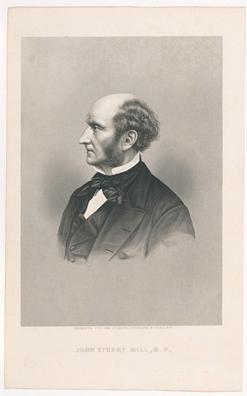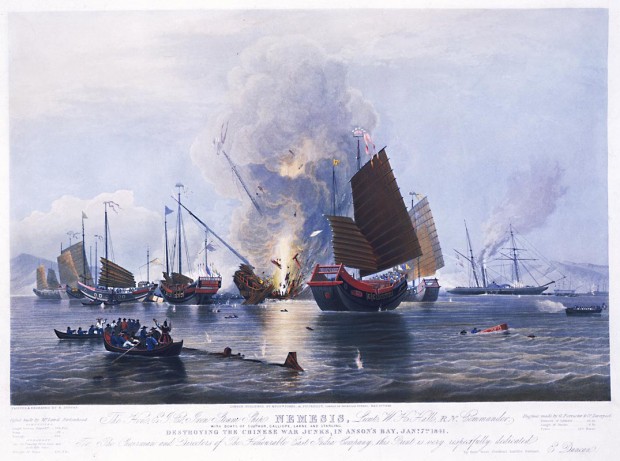
John Stuart Mill

Destroying the Chinese War Junks in Anson’s Bay, Jan. 7th 1841
First Anglo-Chinese War (First Opium War) marked the globalization of economy, large-scale economic movement inspired liberal ideas
Adam Smith, John Stuart Mill, Ferguson: government should practice laissez-faire, society will work best when each looks out for own interest
Rise of middle class, embraced liberalism and the freedom away from governmental regulations, level playing field created when government does not favor groups
Liberals were unsure about the independence revolutions, feared that it would veer to be too dogmatic or too radical
“…liberalism championed legal protection of private property, representative government, an independent judiciary, scientific and technological progress, economic decision-making based on rational calculation rather than static tradition, and international commerce unfettered by state tariff barriers.”
Liberalism in some aspects contradictory in itself: “…industrialists tended to stress the inviolability of private property and free trade, whereas the poor and unenfranchised warmed to the promise of political equality.”